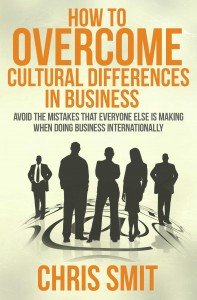In this article I want to address the following topics:
- Examples of masculinity and femininity.
- Feminine and masculine work-related issues.
- Masculine feminine test.
It is important to realize that I’m looking at feminine and masculine from a national culture point of view. Not from a gender point of view (see further in this article).
If you’re unfamiliar with what feminine and masculine are in the context of national cultural differences, I strongly advise you to read this article. It will give you a clear and concise overview of this cultural dimension.
Masculinity ≠ Gender
A BIG misunderstanding is that Masculinity (and Femininity on the other side) are linked to Gender differences. That is not the case.
The cultural dimension called Masculinity says something about what society expects from people in that society. It says nothing about men or women in particular.
In addition, it gives an indication of the direction of motivation:
- Masculine cultures put more emphasis on the goal and goal achievement.
- Feminine cultures put more emphasis on the process towards the goal and to a lesser extent the goal itself (the road towards the goal is more important than the actual achievement)
Therefore rather than comparing feminine and masculine cultures with each other, you can also say process and goal-oriented cultures.
Masculinity and Femininity Examples: Feminine and Masculine Work Related Issues
First, let’s list the issues where the differences between feminine and masculine cultures are the biggest, then I will give you some examples of masculinity and femininity relating to that list:
- Feedback
- Goal setting versus Growing insight
- Role Overlap
- Winning versus participating.
Feedback
The first of the examples of masculinity and femininity revolves around feedback.
You can identify 2 forms of feedback: Negative and Positive. Of those two, which is the most prominent?
Most of us will say negative feedback. Most of us get more negative feedback than positive feedback or praise. Agree?
Well for most (if not all) feminine cultures (e.g. Netherlands and Nordic countries), positive feedback is seen as implicit, while explicit positive feedback is seen as suspicious. So if I am too explicit with my positive feedback to a Dutchman, (s)he will think there is something wrong with me and/or that I want something from him or her.
Where Masculine cultures use words like “fantastic, awesome, great, etc“. Feminine cultures will use words like “nice, fun, ok…“
In addition, from a Feminine culture’s perspective, giving someone too explicit (and too much) positive feedback might result in the receiver actually thinking he or she “is someone“. In feminine cultures, you are not supposed to stick out or think that you are better than others.
In more Masculine cultures (particularly Anglo-Saxon countries) it is much more expected to receive also positive feedback.
My advice during a cultural awareness training for feminine cultures is to put a post-it note next to their computer reminding them to give positive feedback more explicitly to more masculine cultures.
Goal Setting versus Growing Insight
Another example of Masculinity and Femininity is goal setting versus growing insight. Goal setting is a more Masculine trait, while so-called Growing Insight is much more a Feminine trait. This Growing Insight also supports the cultural need to seek consensus rather than to be (overly) decisive.
Goal setting is a more masculine trait. The goal is all-important. There is even an English saying that illustrates this item: “Get it done, by hook or by crook“.
While so-called Growing Insight is much more a Feminine trait. This Growing Insight also supports the cultural need to seek consensus rather than to make fast decisions.
To put it in an example: Masculine cultures stick to an agreed deadline (e.g. a release date of a piece of software; releasing a Service Pack for the bug fixes later). Feminine cultures rather than extend the deadline and solve the bugs now produce a better product from the start.
Role Overlap
The next example of Masculinity and Femininity I’d like to bring up is Role Overlap or Society’s expectations of Genders.
Simply put, in more Masculine cultures men put the garbage out and women take care of the kids. There is a greater role differentiation in Masculine cultures than in Feminine cultures.
In Feminine cultures, the role overlap is much greater. Men do women’s chores and vice versa.
Examples of this are highly educated Indian women (India scores relatively Masculine). Having finished their education more often than not they end up in well paying very good jobs (in India and abroad). But most, when they are between 25 and 30, feel the pressure (mostly from the family) to quit work and have children.
On the other hand, the percentage of women participating in the labor market (typically with part-time jobs) in the Netherlands (a relatively Feminine culture) is the highest in the world.
Winning versus Participating
The last of the examples of masculinity and femininity is about winning and participating.
Whether it is work-related or not, masculine cultures participate in (e.g.) teamwork with the intention to win all the rest is secondary.
Probably you see this coming: feminine cultures participate in (again e.g.) teamwork with the intention to… participate. Joining in is more important than winning (which is achieving a goal).
If you’re interested to see an overview of how other countries score on this dimension of culture, I suggest you take a look here.
Should you wish to read Hofstede’s book with much more examples of Masculinity and Femininity you can get it here.
An article about culture and personality can be found here.
More examples can be found here.
Examples of another primary dimension of culture (hierarchy) can be found here.
Comments? Leave them at the end of this post
Get a Taste of How Chris Presents, Watch his TEDx Talk
 Call Direct: +32476524957
Call Direct: +32476524957
 European Office (Paris) Whatsapp: +32476524957
European Office (Paris) Whatsapp: +32476524957
The Americas (USA; Atlanta, GA; también en Español): +1 678 301 8369
Book Chris Smit as a Speaker
If you're looking for an Engaging, Exciting, and Interactive speaker on the subject of Intercultural Management & Awareness you came to the right place.
Chris has spoken at hundreds of events and to thousands of people on the subject of Cultural Diversity & Cultural Competence.
This is What Others Say About Chris:
- “Very Interactive and Engaging”
- “In little time he knew how to get the audience inspired and connected to his story”
- “His ability to make large groups of participants quickly and adequately aware of the huge impact of cultural differences is excellent”
- “Chris is a dedicated and inspirational professional”
In addition, his presentations can cover specific topics cultural topics, or generally on Cultural differences.
Presentations can vary anywhere from 20 minutes to 2 hours and are given World Wide.
Book Chris now by simply sending an email. Click here to do so.
Read more about what Chris can do for you.
- Percentage of People Rating a Presentation as Excellent 86%
- Rating the Presentation as Practical 89%
- Applicability of Chris' presentation 90%
About Peter van der Lende

Peter has joined forces with Culture Matters.
Because he has years and years of international business development experience joining forces therefore only seemed logical.
Being born and raised in the Netherlands, he has lived in more than 9 countries of which most were in Latin America.
He currently lives in Atlanta, Georgia (USA) with his family.
You can find out more at https://expand360.com/
Or find out what Peter can do for you here.
- 177 Mark Steinberg - 22 February 2024
- Japanese versus Western Culture - 24 January 2024
- 176 James Kennedy on Dutch culture - 15 September 2023



 Call Direct: +32476524957
Call Direct: +32476524957 European Office (Paris) Whatsapp: +32476524957
European Office (Paris) Whatsapp: +32476524957
Thanks for your research
You’re more than welcome 😉